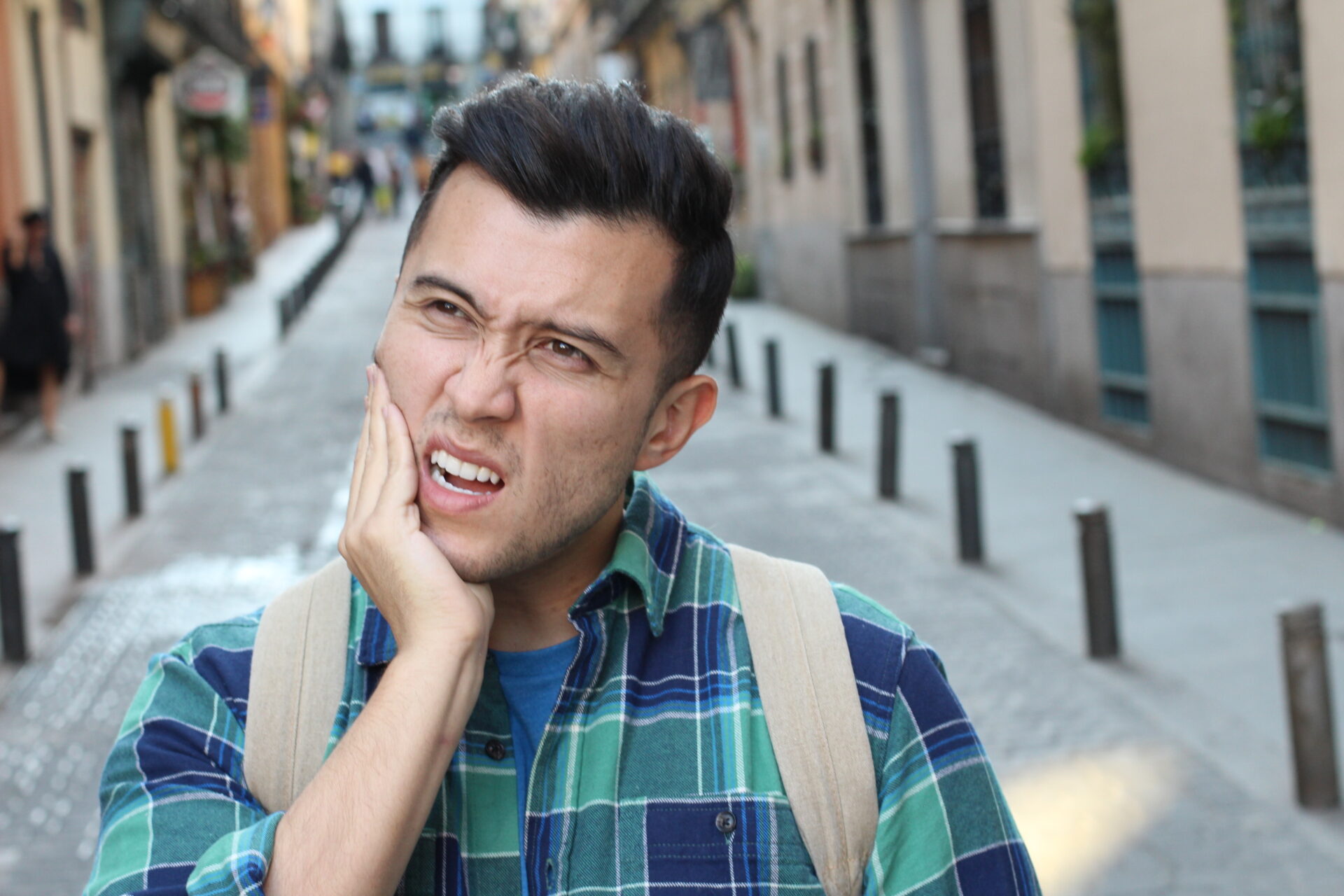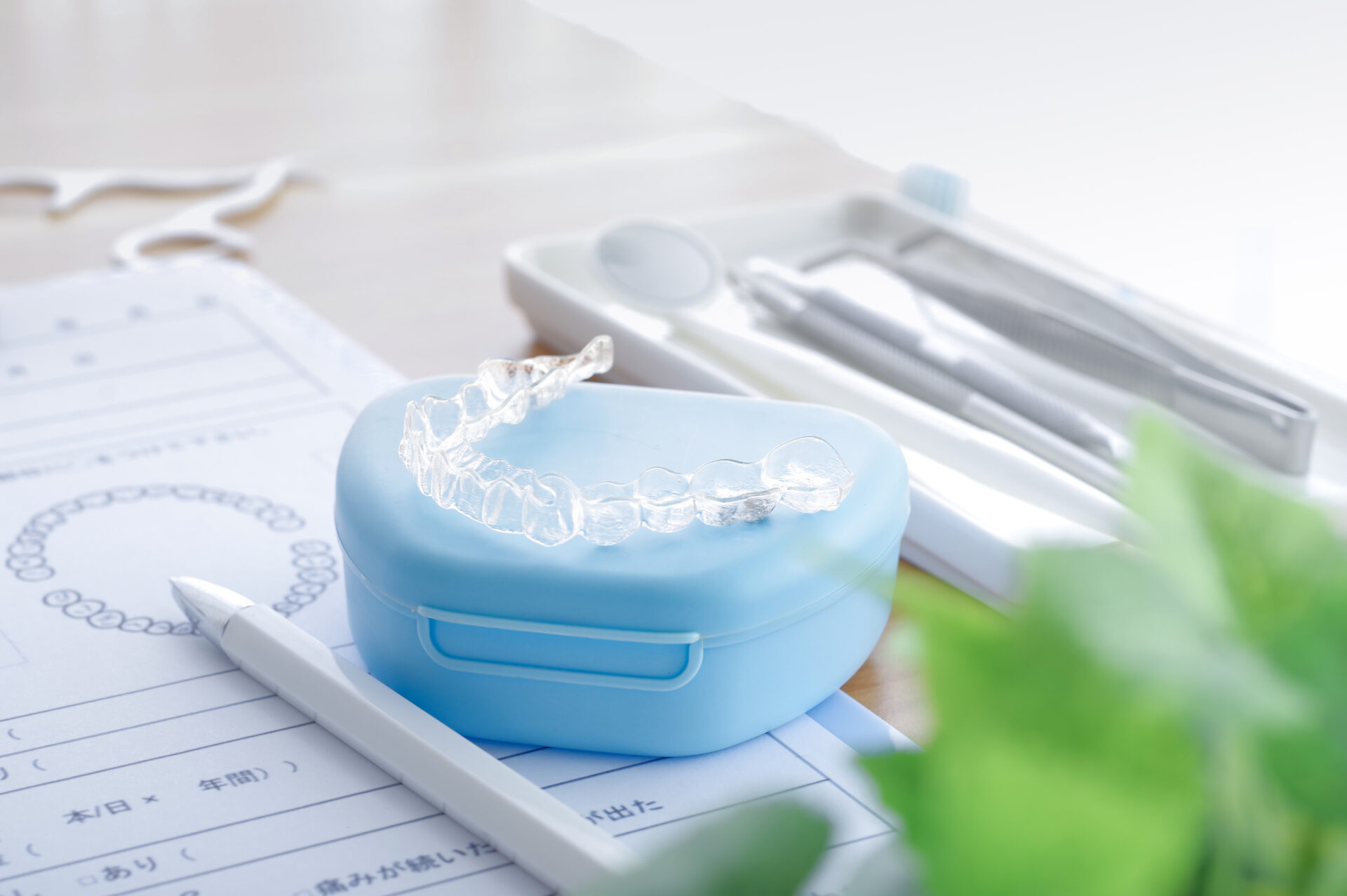10 Jul Tooth Grinding: Causes, Effects, and Solutions
Tooth Grinding: Causes, Effects, and Solutions
Tooth grinding, or bruxism, is a common dental concern, often linked to stress, anxiety, or even certain sounds. The consequences are far from trivial, causing significant discomfort, tooth damage, and often leading to tooth sensitivity. But what exactly causes this habit, and what can you do about it? Let’s delve in and answer your questions.
1. What Causes Tooth Grinding?
Tooth Grinding can be caused by a variety of factors, including stress, anxiety, an abnormal bite, or missing or crooked teeth. Sleep disorders such as sleep apnea can also result in bruxism. Grinding your teeth damages the enamel, causing sensitivity, tooth problems, jaw pain, and changes to your face.
2. Why Does Teeth Grinding Cause Pain?
Grinding teeth exerts an unusual amount of pressure on your teeth and jaw. This added stress leads to the wearing down of your tooth enamel, the outermost layer of your teeth. As your enamel degrades, the more sensitive, underlying dentin is exposed, leading to increased sensitivity. Additionally, the stress placed on the supporting tissues and jawbone can also result in discomfort and pain. The pain can vary in duration, depending on its cause and severity. Some may experience temporary discomfort, while others might suffer chronic pain if the grinding is not addressed. Teeth clenching can cause dull jaw ache, tooth sensitivity, headaches, and sometimes even earaches.
If severe enough. grinding your teeth can lead to nerve pain. Persistent grinding can cause the pulp, the central part of the tooth containing nerves, to become inflamed, resulting in pain.
3. Negative Effects of Grinding Your Teeth
Apart from toothache and increased sensitivity, chronic tooth grinding can cause:
- Tooth damage – Worn down, fractured, or even loose teeth are common in chronic grinders. The constant grinding wears down your enamel, exposing the sensitive dentin and leading to chipping or cracking.
- Temporomandibular joint disorders (TMD) – Grinding can strain your jaw joints, leading to disorders that cause pain and hinder jaw movement.
- Changes in appearance – Persistent grinding can change the shape of your face, particularly if it leads to tooth loss or jaw problems.
- Gum recession: Over time, bruxism can cause your gums to recede, leading to sensitivity and potential tooth loss.
Persistent teeth grinding can lead to severe dental problems if left untreated, including:
- Loss of teeth
- Jaw damage
- Changes to your bite
4. Tooth Sensitivity
Tooth sensitivity can develop suddenly, often as a result of tooth damage, gum disease, or enamel wear. Sensitivity is not necessarily permanent and can often be treated. Treatment methods include desensitizing toothpaste, fluoride gels, and dental procedures such as bonding, crowns, or root canals, depending on the cause.
Teeth grinding can cause sensitivity to cold. As grinding wears down your enamel, the exposed dentin is more susceptible to temperature changes, leading to heightened sensitivity to cold foods and drinks. Over-the-counter desensitizing toothpaste can provide immediate relief for sensitive teeth. Avoiding hot or cold foods and drinks can also reduce discomfort.
5. Sleep and Teeth Grinding
It’s not completely clear why some people grind their teeth in their sleep, but it is often associated with other sleep disorders like sleep apnea. Factors like stress, alcohol consumption, and certain medications can also exacerbate sleep bruxism.
Some of the most common signs of nighttime teeth grinding include:
- Morning headaches or face pain
- Tired or tight jaw muscles
- Long-term damage to your teeth
- Disrupted sleep
- Teeth grinding or clenching that’s loud enough to wake your sleep partner
If your teeth hurt after a night of grinding, this could be due to the strain placed on your teeth and jaw muscles. It’s important to consult your dentist for appropriate treatment options to prevent further pain and damage.
6. The Connection Between Anxiety and Teeth Grinding
People with anxiety often exhibit physical symptoms, and teeth grinding is one of them. Anxiety triggers your body’s “fight or flight” response, causing muscle tension throughout your body, including your jaw. Consequently, people with anxiety may clench their jaws and grind their teeth, often without realizing it.
7. How to Stop Teeth Clenching and Grinding
Stemming teeth grinding often involves treating the root cause. If stress and anxiety are to blame, cognitive behavioral therapy, relaxation techniques, or even yoga and meditation might be beneficial. Some dentists may recommend a night guard, a device worn over the teeth to protect them from grinding during sleep. Read more about wearing a night guard here.
If your grinding is related to an abnormal bite or missing or crooked teeth, your dentist may suggest orthodontic treatment or other dental interventions.
8. Adult Treatments for Teeth Grinding
Treatments for teeth grinding in adults include stress management techniques, biofeedback, dental guards to protect teeth during sleep, and dental correction methods for issues such as misaligned teeth. Your dentist may also recommend avoiding stimulants like caffeine, which can exacerbate grinding. Tooth pain from clenching can be relieved by using a warm compress on the jaw, over-the-counter pain relievers, and dental treatments such as mouth guards or orthodontic appliances.
In conclusion, while teeth grinding might seem like a harmless habit, it carries significant long-term risks. However, by identifying the cause and working with a healthcare professional, this habit can be managed and its effects mitigated. Protect your pearly whites and invest in your oral health today!




